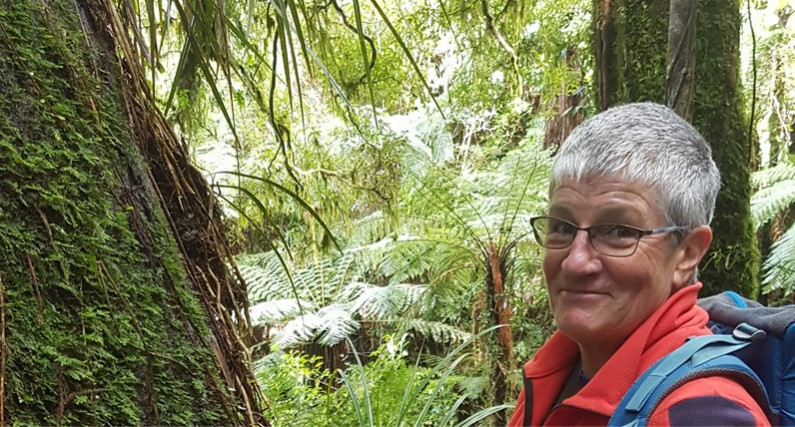
10 questions with... Lorna Gribble
Waikato WanderSearch Trust chair and secretary Lorna Gribble knows only too well how huge New Zealand is, especially to those who go missing, and those tasked with finding them. The avid tramper explains a little more about her role within a vital organisation which supports at-risk people to live healthy, active lifestyles.
How long have you been involved in SAR?
I joined the Hamilton LandSAR group in 2012. Soon after, I was approached by the head of the local Police SAR squad and asked if I would be interested in WanderSearch. He could see it was going to grow and expand to include clients beyond those linked to the Dementia Society.
WanderSearch is one of several technologies that supports the Safer Walking Framework in New Zealand. It applies to people with cognitive impairment who are at risk of going missing.
How many people are involved with the Trust?
There are five trustees. We’re incredibly low-key but needed a platform for handling the funding side of things. I have one other volunteer helping me – I still like to be able to get away now and then with my husband in the motorhome.
There’s also a fair bit of work involved in keeping track of the actual devices; making sure they are correctly distributed and maintained.
What encouraged you to get involved?
I grew up on a farm in the King Country and my father had often gone bush looking for hunters or farmers who were delayed. Later one of my brothers became involved in search and rescue in Taumarunui.
It complements tramping. I do a lot of day walking in the Waikato and now I’m also doing a bit of bait line maintenance for the Pirongia Te Aroaro o Kahu Restoration Society.
Where is your favourite tramping destination?
I love being on the tops - most people do. On a beautiful day you can see forever, especially in places like the Kahurangi (North-West Nelson). It’s just spectacular.
This little country is actually huge and I’m sure there are still untouched gullies where no one has ever been. We have 1400 hectares of bush on our own property, and I love walking the back-ridges of our farm.
You’re now retired; what was your occupation before then?
I was a medical laboratory scientist involved in diagnostic testing, so I’m following the COVID-19 story with great science interest.
What’s changed since you started volunteering?
The number of clients has increased a lot in the Waikato. We hover around 66 but it varies.
Technology has also changed. When I started very few even had email, so I was on the phone a lot or meeting people in person. There is now a broader range of technology available, and GPS technology has been a substantial change, but it has limitations – everything costs.
Do you get to head out on searches?
I’ve been called out two or three times. In parts of the country some of the LandSAR volunteers are involved in WanderSearch and are actively searching for clients. Each Police district handles it differently.
What has stood out to me on those occasions is the buzz you get when you hear the little beep of the device and you go, ‘yes, I’m in the right area’.
What do you do to relax?
Aside from tramping, we have a gully behind our house in Hamilton where I’m slowly getting rid of weeds and replacing them with native plants.
What’s the most unexpected thing that’s happened to you while volunteering?
It’s a real privilege to be allowed in someone’s home at a time they’re vulnerable because the person they love and care for is causing them stress.
What’s one key message you’d like to pass on to others?
Don’t assume that someone with dementia isn’t capable of walking further than you might think. Someone with this condition might believe they are far younger, and fuelled by an extra amount of adrenalin, they might be capable of doing something the family might not have thought possible. You have to be open to all possibilities and that’s typical of all searching.
This story first appeared in the December 2021 issue of Link magazine
Visit wandersearchnz.org.nz to learn more.
